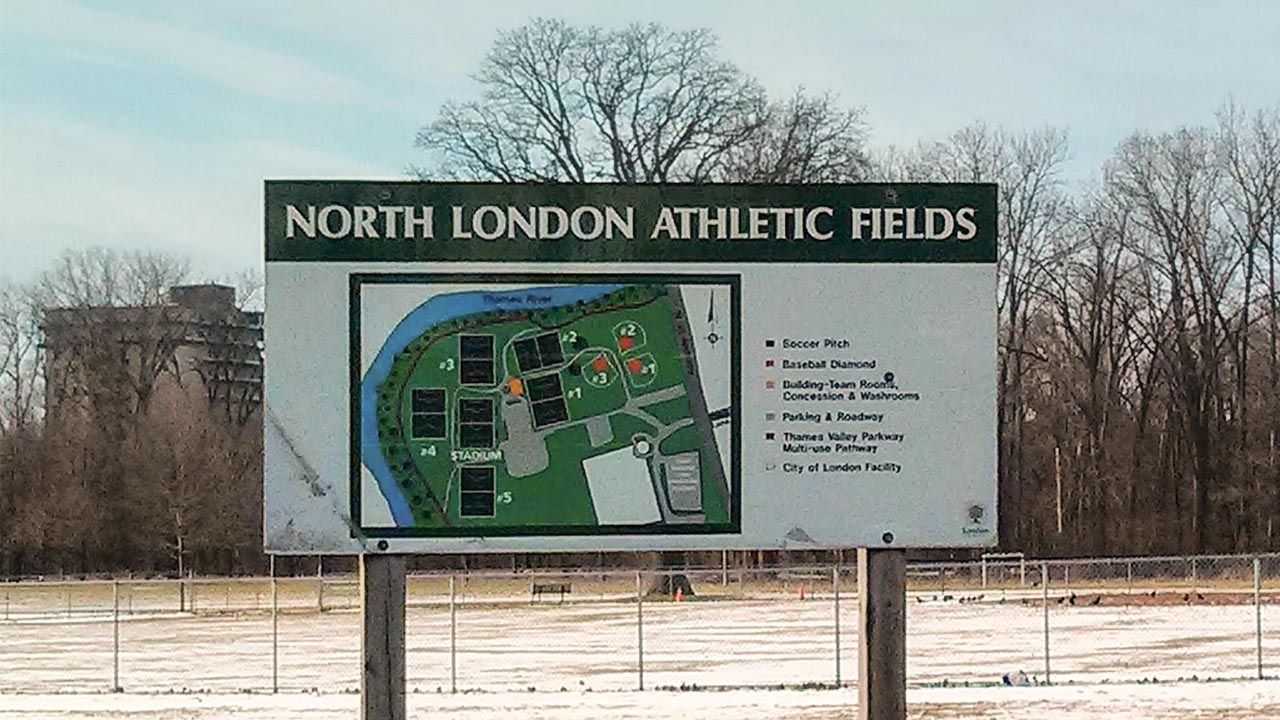Athletes express concern on wastewater project impact
 CREDIT: MIA ROSA-WAYNE
CREDIT: MIA ROSA-WAYNEFanshawe athletes, who regularly use the North London Athletic Fields, are hoping renovations to the Adelaide Wastewater Treatment Plant will not disrupt their facilities.
The City of London is bracing for a significant construction project later this year, aimed at safeguarding the areas surrounding the Adelaide and Greenway Wastewater Treatment Plants.
While the initiative is crucial for the city’s infrastructure, it comes with the unfortunate consequence of impacting and shutting down some populated areas, including those regularly used by Fanshawe athletes.
The Division Plant Manager, Kirby Oudekerk, outlined the construction timeline for the city’s wastewater treatment plants.
“Greenway will be the first to undergo renovation in June,” Oudekerk said. “Adelaide is expected to follow suit in late summer, early fall.”
The planned closures are a result of the essential work needed to protect the wastewater treatment facilities.
Both areas have popular usage of their land. At Greenway, they plan to close their off-leash dog park for at least two years.
The Thames Valley and Terry Fox Parkways at Greenway Park will be impacted, closing for a duration of about six months.
Fanshawe athletes, particularly soccer players, are expressing concerns regarding the potential impacts to the North London Athletic Fields, as it is closely linked to the Adelaide Wastewater Treatment Plant.
With London being home to three major soccer teams, the potential distribution to the city’s largest and most-used fields raise valid worries among athletes.
“I think it’s great what they’re doing, and it can really help the city,” said soccer player Annika Thompson. “I just hope it doesn’t affect our fields, since these ones are the largest most used fields in the city. My time playing soccer here, I’ve never not seen a runner or a cyclist, so I hope a wellset detour is put in place for users.”
While recognizing the importance of the construction projects, athletes and community members are voicing their concerns about potential impacts it will have on recreational spaces and sports facilities.
A public meeting was held Jan. 12 at City Hall to discuss the start, impacts, and outcome of the project.
“We had a good turnout,” said Oudekerk. “It was mainly for people to come and hear what is going to be impacted, especially for those who use the Thames Valley and Terry Fox Parkways to commute to downtown by bicycle. We just wanted to get the word out so people can plan and set up a functional detour for everyone.”
During the meeting, it was stated that 148 trees will be cut down with new trees being added in other parts of the city.
They added that they are hoping for no potential impacts for the North London Athletics facility that’s used by thousands of sports users.
As London prepares for this project protecting the wastewater facilities, the community, including athletes, faces the prospect of temporary closures and disruption. The hope is that the construction will ultimately contribute to a more resilient and sustainable city, without compromising the vital spaces that make London a vibrant and active community.














